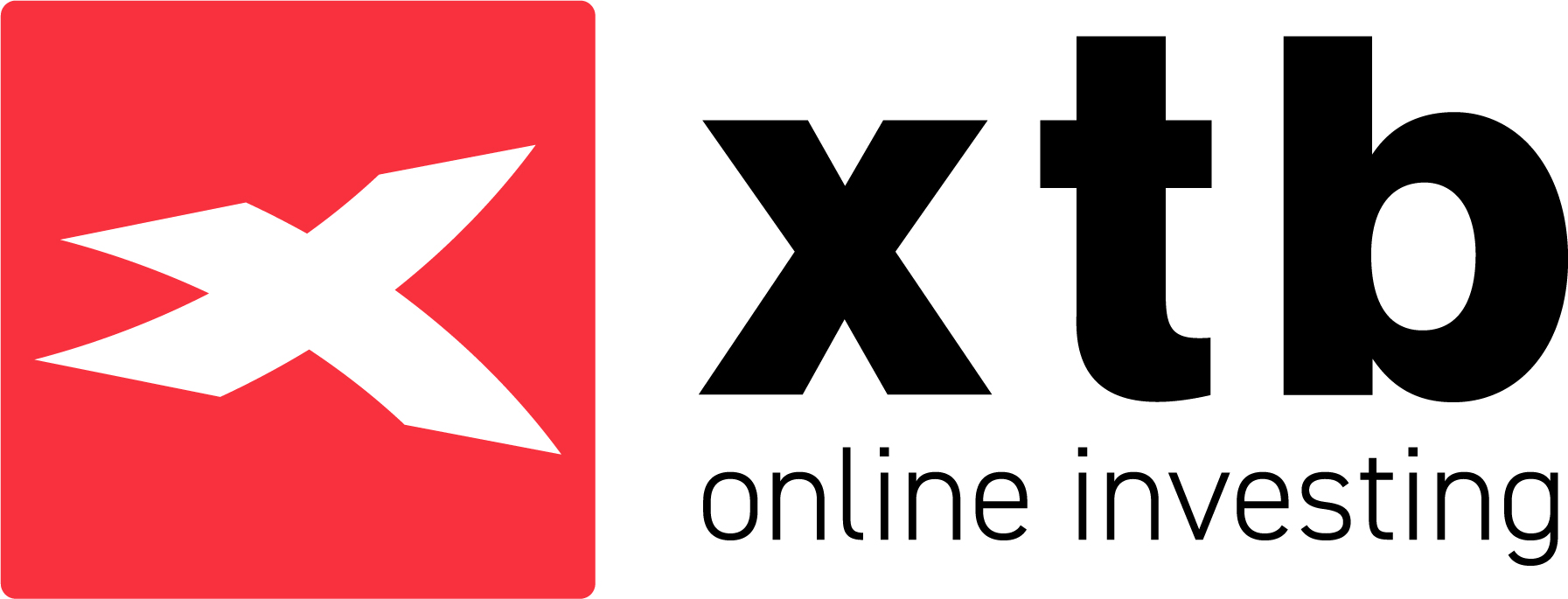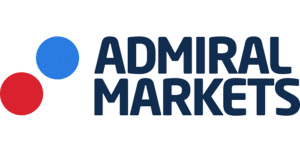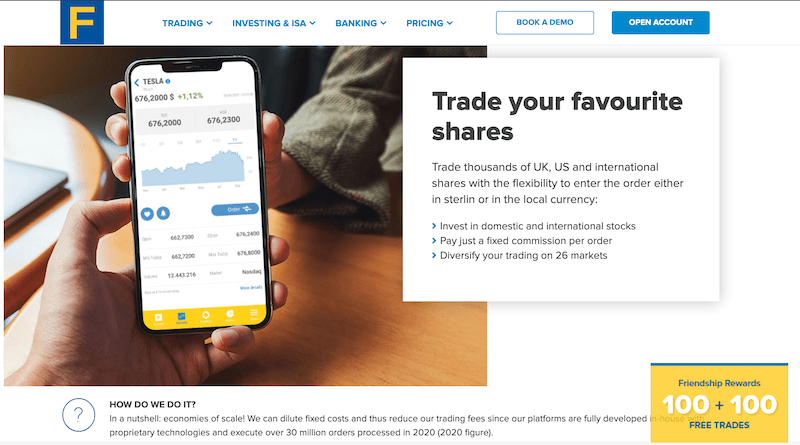Cost of Selling Shares
Most people who invest in the stock market take into account the cost of buying shares. However, when you trade with a share dealing platform, you’ll be charged for each transaction you make, which means you also need to take into consideration the cost of selling shares.
This guide can help you understand the cost of selling shares in the UK. We’ll explain the various forms of buying and selling shares in the UK and suggest cost-effective platforms to buy and sell stocks.
Cost of Selling Real Shares
Before we delve into the details of the cost of selling shares, it is crucial to understand the difference between different forms of investments. Presently, there are two options to buy and sell shares in the markets – via a share dealing platform or via Contract for Difference (CFDs).
The first option is to open an account with a share dealing investment platform that connects you to various exchanges such as the London Stock Exchange where you’ll be able to place an order and physically buy the asset outright and then get share certificates that show your ownership in the company. Further, with these brokers, you get access to various financial services such as ISAs account, SIPP, investment trusts, and dividend reinvestments programs.
When you choose an investment platform that directly connects you to the exchange like Hargreaves Lansdown, Barclays, etc – you’ll have to pay a fixed trading dealing commission that typically ranges between around £1.5-£10. Additionally, on traditional brokers platforms, you’ll have to pay a stamp duty tax of 0.5% on the transaction when you buy shares electronically and account management fees.
The second option is to buy and sell shares via derivatives, or in other words, Contract for Difference. These are basically outside of the exchange contracts that enable two sides to speculate on the price of the asset without owning it. With CFDs, you are not required to pay any share dealing charges nor stamp duty tax, or account management fees. Instead, you pay only the buy and sell spread.
Another option is to open an account with FinecoBank that allows you to trade shares outright or in the form of CFDs. For buying shares outright, this broker has a 100 free trades bonus that enables you to buy and sell shares and bonds without any commission charges in the first 100 trades you make.
Generally, it is important to remember that while there are many benefits of trading on a CFD trading account, some investors prefer to invest their money via stocks and shares ISA account (or via a self-invested personal pension, SIPP). This account type is available on traditional brokerage firms that connect users to exchanges and offers several benefits that include:
- On an ISA account, you don’t pay capital gains tax
- No tax on interest rate earned on fixed-income assets
- No tax from dividend payment from shares
Cost of Selling Shares Comparison
| Cost of Selling Shares | Number of Shares | |
| Fineco | CFDs (free, only spreads) or outright (£2.95 fixed commission per trade) | over 20,000 shares |
| Hargreaves Lansdown | £1.50 per deal | 8000 |
| Barclays | £3 per transaction (£1 if investing more frequently) | Over 30,000 instruments |
| Halifax | Real-time online trades – £9.50 per trade. Scheduled regular investments – £2 per trade | N/A |
| Equinit Shareview | £12.5 per trade | 8000+ markets |
| Fidelity | £10.00 for each deal | More than 7000 |
Cost of Selling Share CFDs
As we mentioned above, the vast majority of CFD brokers offer investors to buy and sell shares without having to pay fixed trading commissions. Instead, these brokers charge the buy and sell spread only, which is the one direct charge you’ll need to consider when selling share CFDs.
This means that if you are planning to trade frequently, a CFD platform could be the best choice as you do not have to pay any fixed trading commissions. This is particularly the case for active day traders that do not hold positions open overnight and thus, can avoid paying the swap fee.
Notably, spreads vary between different brokers and the assets being traded. As such, you need to choose a CFD broker that gives you competitive spreads and low fees.
Cheapest Platforms for Selling Shares
By now, you have a better picture of the cost of selling shares in the UK. But in order to help you find the most cost-effective share dealing service to buy and sell shares, below we suggest two of the best UK stockbrokers.
1. XTB
XTB is a popular UK stock broker that offers trading on more than 2,100 shares and ETFs – all 100% commission-free. Furthermore, spreads at this broker start at just 0.015% for US-listed stocks, making it one of the cheapest options available for UK traders. XTB doesn’t require a minimum deposit to get started and the broker doesn’t charge deposit or withdrawal fees.
XTB’s custom-built stock trading platform – xStation 5, is also available for the web and mobile devices and it comes packed with research tools. You’ll find technical charts and dozens of studies to start, plus a market news feed that includes actionable trade ideas with annotated price charts. The platform also has a market sentiment gauge which allows users to easily see what other traders think about where a stock’s price is headed.
XTB’s platform also includes a stock and ETF screener, which can be really useful for traders. With this tool, users can easily scan the market for stocks that are taking off or that seem poised for a fall. Using the screener, it’s possible to create watchlists and narrow down your search to find better trading opportunities.
XTB is regulated by the UK FCA and CySEC and offers negative balance protection for all traders. In addition, the broker offers customer support by phone, email, and live chat, available 24/5.
76% of retail CFD accounts lose money.
2. AvaTrade
AvaTrade is a UK CFD broker that offers 0% commission trading on over 600 global stocks. The platform also carries dozens of exchange-traded funds (ETFs), stock indices, commodities, and forex pairs for trading. Notably, AvaTrade also offers trading on forex options – but it doesn’t offer stock options at this time.
AvaTrade has a few different trading platforms you may use to trade stocks. Like Pepperstone, this broker gives all traders access to MetaTrader 4 and 5.
Alternatively, the AvaTrade web trading platform and AvaTradeGO platform are available on iOS and Android devices as well . You get watchlists, a market news feed, and dozens of technical studies. On mobile devices, users can access full-screen charts and enter orders with just a few taps.
AvaTrade also has its own social trading app for iOS and Android, called AvaSocial. Although this isn’t integrated into AvaTradeGO, it’s simple to switch back and forth between sharing ideas and setting up trades. AvaSocial also enables copy trading, so you have the ability to mimic the portfolios of more experienced stock traders in just a few taps.
AvaTrade is regulated by the UK FCA and Australia’s ASIC. The platform requires a $100 minimum deposit to open an account and you may pay by credit card, debit card, or bank transfer. AvaTrader offers 24/5 customer service.
Your capital is at risk.
3. FP Markets

One of FP Markets’ standout features is its commitment to offering competitive pricing with tight spreads, ensuring that traders can maximize their profits. The broker also supports various trading platforms, such as MetaTrader 4, MetaTrader 5, and IRESS, allowing traders to choose the platform that best suits their trading style and needs.
FP Markets strongly emphasizes education and resources, providing traders with access to a wealth of educational materials, webinars, and market analysis. This dedication to trader education helps both beginners and experienced traders enhance their trading skills and make informed decisions.
Customer support at FP Markets is highly responsive and available 24/5, ensuring that traders receive prompt assistance whenever needed. Additionally, the broker is regulated by top-tier authorities like ASIC and CySEC, providing traders with a sense of security and trust.
In summary, FP Markets stands out as a reliable and versatile broker. It offers a robust trading environment supported by competitive pricing, excellent educational resources, and top-notch customer service.
Your capital is at risk
4. Pepperstone
Pepperstone is a popular UK stock brokers for traders who want to use MetaTrader 4 or 5. These popular trading platforms offer unparalleled tools for technical analysis, including the ability to create custom technical studies. You may also backtest trading strategies against historical price data to see how they are likely to perform.
This broker also offers a few extra tools that are built specifically for MetaTrader. For example, there’s a correlation heatmap so investors will be able to see whether the stocks you’re invested in typically move at the same time. There’s also an alarm management tool that lets you create custom alerts based on price changes, trading volume, and more.
Pepperstone carries thousands of share CFDs from the US, UK, Europe, and Australia. The broker’s charges vary based on the market you’re trading – US shares trade commission-free, while UK shares carry a 0.10% commission. So, this broker can be slightly more expensive than some of its peers.
Pepperstone is regulated by the UK FCA and the Australian Securities and Investments Commission (ASIC). The platform doesn’t require a minimum deposit to open an account, which is a major plus if you’re not ready to commit hundreds of pounds to trading just yet.
Your capital is at risk.
5. PrimeXBT
PrimeXBT is an innovative stock broker that caters to a diverse range of traders, from beginners to seasoned professionals. Known for its versatility and user-friendly interface, the platform offers an array of features designed to enhance the trading experience across multiple asset classes.
One of the standout aspects of PrimeXBT is its wide range of available markets. Users can trade in cryptocurrencies, forex, commodities, and indices all from a single account. This flexibility allows traders to diversify their portfolios and take advantage of different market opportunities without needing to switch between platforms.
PrimeXBT offers a suite of trading tools and advanced charting options to help traders make informed decisions. The platform integrates customizable indicators, drawing tools, and multiple timeframes, enabling users to tailor their charts to suit their individual trading strategies. Additionally, PrimeXBT provides leverage trading options, which can amplify potential profits for experienced traders.
The platform’s trading interface is sleek and intuitive, designed to make navigating the markets straightforward. Opening, managing, and closing trades can be done with ease, while the performance of live trades can be tracked in real-time. PrimeXBT also offers an innovative feature known as Covesting, which allows users to follow and replicate the trades of successful strategy managers, providing an educational and potentially profitable experience.
PrimeXBT also prioritizes the security and privacy of its users. The platform employs industry-standard security measures to safeguard user accounts and data, such as two-factor authentication and encryption. Customer support is available to assist traders with any queries they may have, ensuring a smooth and reliable trading experience.
In summary, PrimeXBT stands out as a comprehensive trading platform offering a variety of markets, robust tools, and an easy-to-use interface. Its emphasis on security, diverse asset offerings, and innovative features like Covesting make it an excellent choice for traders looking to explore and capitalize on global market opportunities.
Your capital is at risk.
6. Admiral Markets
Admiral Markets is a globally recognized online trading broker known for its comprehensive range of financial instruments and user-friendly platforms. With a presence in over 40 countries, the company has built a strong reputation for providing a reliable and secure trading environment for both beginner and experienced traders.
One of the standout features of Admiral Markets is its extensive selection of trading instruments, including Forex, stocks, commodities, indices, and more. This variety allows traders to diversify their portfolios and explore different markets with ease. The broker offers competitive spreads and flexible leverage options, catering to various trading styles and strategies.
Admiral Markets is also praised for its robust platforms, particularly MetaTrader 4 and MetaTrader 5, which are equipped with advanced charting tools, technical indicators, and automated trading capabilities. These platforms are available on both desktop and mobile devices, ensuring seamless trading experiences across all devices.
The broker places a strong emphasis on education, providing a wealth of resources such as webinars, tutorials, and market analysis to help traders make informed decisions. Additionally, Admiral Markets is regulated by several reputable financial authorities, ensuring a high level of trust and transparency.
Overall, Admiral Markets stands out as a top-tier broker, offering a comprehensive trading experience supported by excellent customer service and innovative tools.
Your capital is at risk
7. Trade Nation
Trade Nation is a well-established stock broker known for its reliability and comprehensive range of services. As an FCA regulated broker, traders can trust that their investments are in safe hands. Trade Nation offers a diverse selection of trading options, including stocks, CFDs, spread betting, and forex trading. One of the standout features of Trade Nation is its commitment to providing low-cost fixed spreads, starting from an impressive 0.6 pips for CFDs, ensuring traders can navigate the markets without any surprise fees.
In addition to its impressive range of services, Trade Nation offers compatibility with popular trading platforms, including MetaTrader 4 (MT4) and TN Trader. MetaTrader 4 is renowned for its user-friendly interface and advanced charting capabilities. It is a preferred choice for many traders due to its extensive range of technical indicators, customizable charts, and automated trading options through Expert Advisors (EAs). With Trade Nation’s integration of MT4, traders can access a seamless trading experience with all the familiar features they rely on for their trading decisions.
Trade Nation has developed its proprietary trading platform, TN Trader, catering to traders who prefer a platform tailored to the broker’s offerings and user experience. TN Trader boasts a user-friendly interface and is equipped with a suite of tools, including advanced charting, analysis tools, and real-time market data. It is an excellent option for traders who prefer a platform specifically designed to complement Trade Nation’s services and trading conditions.
Trade Nation also provides regulated signals software that can be used to guide stock trading decisions. As well as this, users can also access a variety of educational resources and analysis tools that can be used to improve trading strategies and make informed stock trading decisions. Users can practice different strategies with the free demo account.
75% of retail investor accounts lose money when trading CFDs with this provider.
8. IUX.com

IUX.com boasts competitive spreads, a key factor for maximizing your profit potential. They also advertise high leverage, which can amplify gains (and losses) for experienced traders comfortable with calculated risks. The MT5 platform is a user-friendly and powerful tool, providing advanced charting functionalities and a robust set of technical indicators to help you make informed trading decisions.
IUX.com understands that every trader has unique needs. That’s why they offer a variety of account types, allowing you to select the option that best suits your capital and trading style. This level of flexibility ensures you can enter the market with confidence, knowing your account is set up for your specific goals.
If you’re looking for a forex broker that prioritizes your trading experience, IUX.com is definitely worth considering. Their diverse platform, competitive offerings, and focus on trader empowerment make them a compelling choice for those seeking to navigate the forex market.
Your capital is at risk.
9. Fineco Bank – Top Rated Online Share Dealing Platform

If you choose the second option, you’ll be able to use a leverage ratio of 30:1 when you buy and sell US and UK shares. However, you should take into consideration that the range of shares is fairly limited when compared to other CFD platforms.
Otherwise, you can use FinecoBank to buy US shares, UK shares, and international shares outright – meaning directly from exchanges. In this case, the cost of buying and selling shares is just $3.95 and the broker has zero FX conversion rates. Best of all, if you open a share dealing account at Fineco, you’ll get a sign-up bonus that gives you 100 free trades.
When it comes to trading platforms, Fineco offers two options – a web trading platform that is easy to use and suited beginner investors and a professional trading platform known as the PowerDesk.
Pros:
- Low-cost share dealing platform
- Allows you to trade shares outright or via CFDs
- Over 20,000 financial instruments
- Commission-free CFD trading – Low spreads
- Supports two trading platforms – web trading and PowerDesk
- A heavily regulated brokerage firm
Cons:
- A limited number of shares for CFDs when compared to other brokers
- No social trading tools
Your capital is at risk.
Conclusion
The bottom line, selling shares is another cost that people often don’t take into consideration. However, brokerage firms charge investors for each trade they make, including selling their shares. This means you’ll have to find a broker that will meet your trading demands and gives you the best trading conditions to trade shares.






